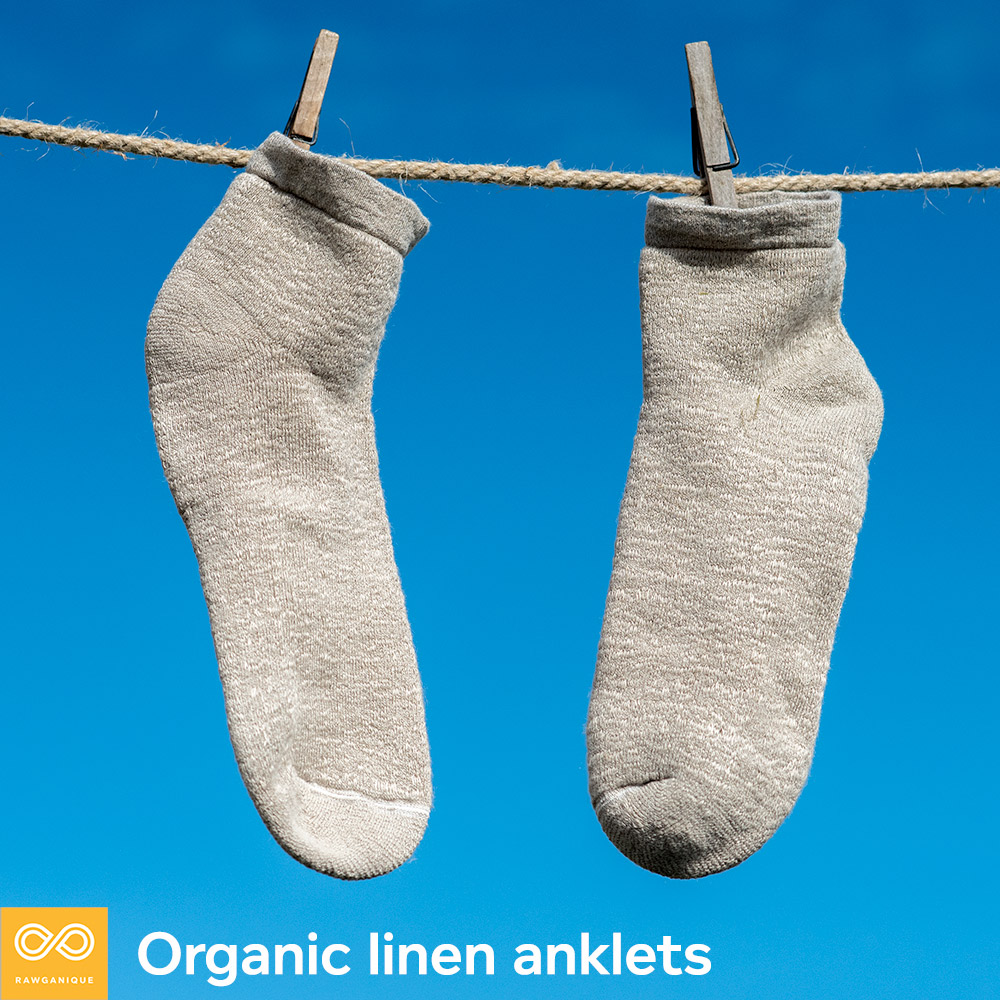We hope you went and bought your first pair of hemp shoes after reading last week's blog post [link]. If you did, congrats! You're one step closer to happy, healthy feet. But the truth is, shoes are only half the battle. If you're still wearing synthetic, chemically-finished socks, then a pair of hemp shoes may not do you much good.
How come?
Well, socks in this day and age are riddled with synthetic materials such as polyester, elastic, nylon, elastane, spandex, polyamide, plastic, rayons.. the list goes on. These materials decrease the breathability of your socks by trapping moisture and blocking evaporation. And since synthetics are not absorbent in any way, that moisture has nowhere to go. (Note: bacteria thrives in dark, damp environments).
However, rest assured that your plastic socks will last decades (and so will your blisters).
It's time you gave organic socks a try. No synthetic fibres, no finishing chemicals - only pure, natural fibers.
What kind of fibers?
The go-to is typically cotton, but I'm here to tell you that cotton may not be the best solution to sweaty feet.
*gasp*
I know, I know. Everything is made of cotton these days, so it's only natural to question something that isn't. We discussed properties of cotton in our blog post about fabric and sheets, but I will explain here too.
Cotton fibers are thin and fluffy, allowing them to be knitted very tightly together. Cotton fabric can actually trap heat in a similar way that synthetics do. Cotton does have the advantage of absorbency, however, and it will absorb up to 100% of its weight in moisture. The issue is, cotton could hang on to that moisture all day. Organic cotton is certainly one of the three natural fibers we work with at Rawganique. We love that it's soft, stretchy, and pure. But when it comes to wicking away moisture, there are a couple of other, more breathable organic alternatives.
What features do you value most? Would you prefer:
A) Breathability
B) Moisture-wicking
C) Absorbency
D) Insulation, or
E) All of the above
I'll take E, all of the above! Enter: hemp and linen. The benefits of these fibers are the same in socks as they are in shoes, sheets, and just about everything else. Socks made of hemp and linen will be breathable, moisture-wicking, absorbent, and insulating. You can read more on this topic in our blog post about fabrics and sheets.
Corporations have convinced the world that they need synthetic "smart" fibers in their clothes for stretchability and temperature regulation, among other things. But that's simply not the case. Human-made substances and materials such as synthetic micro fibers, chemicals and plastics are not meant to be worn close to your body day after day. Doing so may compromise your health in more ways than one, and your stinky, sweaty feet are an indicator.
Rawganique makes dozens of 100% organic socks in different shapes, colors, and styles. All are made from organic cotton, linen, and/or hemp. We even have elastic-free socks for those who want a truly pure experience.
Treat your feet and stop the stink. Wear organic, wear hemp!
SHOP HERE: http://www.rawganique.co/organic-socks-s/193.htm




